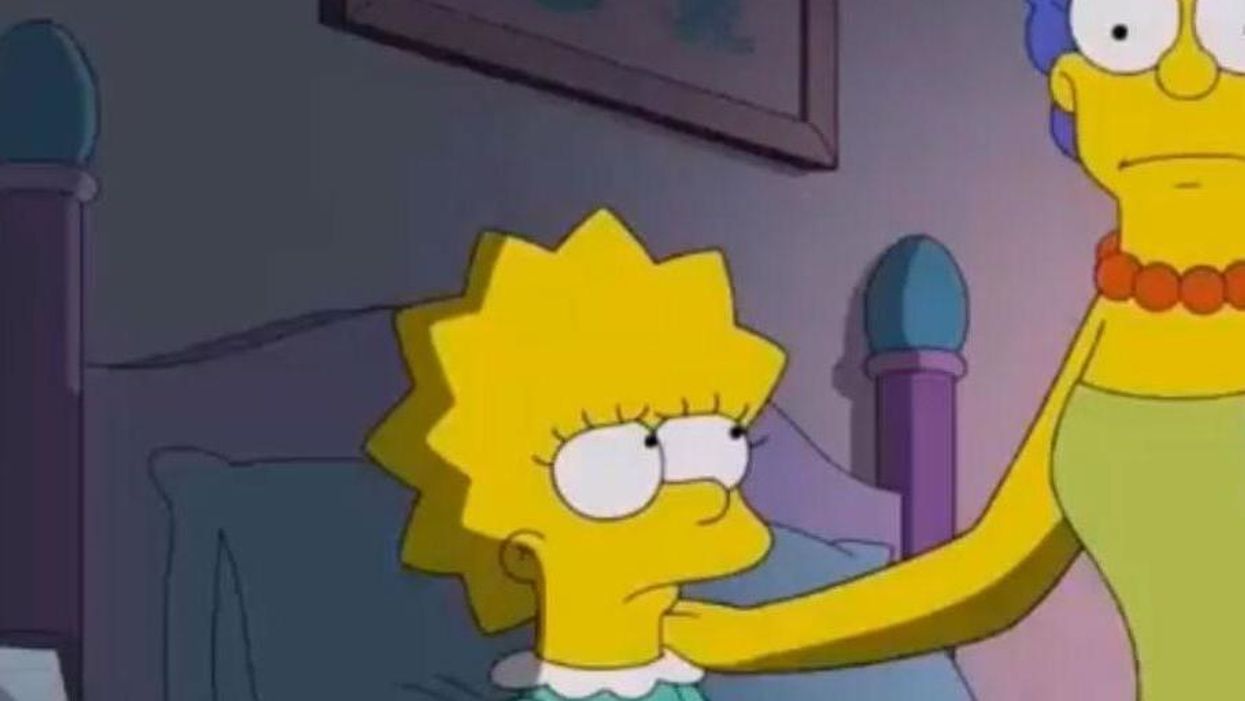Showbiz
Jake Hall
Apr 11, 2018
"Thank you, come again!" No matter where in the world you grew up, it’s likely you’ll recognise these words as the plucky catchphrase of The Simpsons convenience store owner Apu Nahasapeemapetilon.
Last year, comedian Hari Kondabolu decided to unpack the character in more detail with The Problem With Apu, an in-depth documentary which sees him pursue the idea of Apu as a racist stereotype.
Now, The Simpsons creators have responded to the controversy in recent episode ‘No Good Read Goes Unpunished’, in which the family goes on the hunt for books to read after Marge imposes an electronics ban.
The search initially goes well, with Bart seeking knowledge in The Art of War and sharing it with notorious bully Nelson. Marge, on the other hand, is surprised to discover that The Princess in the Garden, one of her favourite titles, is decidedly problematic in a 21st century context.
With that in mind, she rewrites it to make it "as inoffensive as a Sunday in Cincinatti".
Exhausted and weary, Marge clearly feels burdened by being forced to tailor the book, to make it "politically correct". Lisa, disappointed, responds that the book’s new heroine is “pretty perfect” and therefore “doesn’t have an emotional journey to complete”, making the book “pointless”.
An exasperated Marge, likely channelling The Simpsons scriptwriters in the wake of Apu-gate, asks: "Well what am I supposed to do?" Before Lisa delivers the key reference to the Apu scandal:
It’s hard to say. Something that started decades ago and was applauded and inoffensive is now politically incorrect. What can you do?
The camera pans out to show a portrait of Apu emblazoned with Bart’s famous catchphrase: "Don’t have a cow."
Ironically, Lisa has a well-documented history of political correctness; many Twitter users pointed out that, way back in the mid-1990s, she campaigned for the removal of a sexist Malibu Barbie doll. As an intelligent, incisive young girl, she felt frustrated at a lack of representation and led a company to get the doll modified.
Many have pointed out the obvious problem – that The Simpsons creators were willing to challenge sexism but ultimately drew the line at addressing their own lack of South Asian representation.
Others were quick to make jokes, with one Twitter user embedding the clip alongside the caption: "That look white people give you when you ask them to be accountable for racism in their community."
Meanwhile, Kondabolu was understandably frustrated at the response, especially given his countless attempts to get an official quote from Hank Azaria, the voice of Apu, in his documentary. By challenging one of the world’s most popular franchises, he also opened himself up to online critics and abuse, recently sharing just one of the nasty emails he’s received for "ruining Apu".
He also joked that he had made the show relevant again – a statement which is fair given the recent reports of ratings falling to an all-time low.
Whether or not The Simpsons actually decides to address its representation problem, Kondabolu’s documentary has at least opened up important debates around race and, in the process, highlighted that sometimes the things we love just don’t age well.
More: Millennials are saying that The Simpsons is racist and offensive
Top 100
The Conversation (0)














